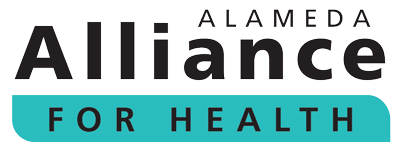The Alliance is committed to working with our provider network in offering our members the highest quality of health care services.
Timely access standards* are state-mandated appointment timeframes for which you are evaluated.
All providers contracted with the Alliance are required to offer appointments within the following timeframes:
APPOINTMENT WAIT TIME |
|
| Appointment Type: | Appointment Within: |
| Urgent appointment that does not require PA | 48 hours of the request |
| Urgent appointment that requires PA | 96 hours of the request |
| Non-urgent primary care appointment | 10 business days of the request |
| First prenatal visit | 2 weeks of the request |
| Non-urgent appointment with a specialist physician | 15 business days of the request |
| Non-urgent appointment with a behavioral health provider | 10 business days of the request |
| Non-urgent appointment with an ancillary services provider for the diagnosis or treatment of injury, illness, or other health conditions | 15 business days of the request |
| ALL PROVIDER WAIT TIME/TELEPHONE/LANGUAGE SERVICES/TRAVEL TIME | |
| Type: | Within: |
| In-office wait time | 60 minutes |
| Call return time | 1 business day |
| Time to answer call | 10 minutes |
| Telephone access – Provide coverage 24 hours a day, 7 days a week. | |
| Telephone triage and screening – Wait time not to exceed 30 minutes. | |
| Emergency instructions – Ensure proper emergency instructions. | |
| Language services – Provide interpreter services 24 hours a day, 7 days a week. | |
| Distance – A primary care provider/hospital within 15 miles or 30 minutes from where members live or work. | |
PA = Prior Authorization
*Required by the Department of Managed Health (DMHC) and Department of Health Care Services (DHCS) Regulations, and National Committee for Quality Assurance (NCQA) Health Plan (HP) Standards and Guidelines.
Urgent Care – Services required to prevent serious deterioration of health following the onset of an unforeseen condition or injury (i.e., sore throats, fever, minor lacerations, and some broken bones).
Non-urgent Care – Routine appointments for non-urgent conditions.
Triage or Screening – The assessment of a member’s health concerns and symptoms via communication with a physician, registered nurse, or other qualified health professional acting within their scope of practice. This individual must be trained to screen or triage, and determine the urgency of the member’s need for care.
Shortening or Extending Appointment Timeframes – The applicable waiting time to obtain a particular appointment may be extended if the referring or treating licensed health care practitioner, or the health professional providing triage or screening services, as applicable, acting within the scope of their practice and consistent with professionally recognized standards of practice, has determined and noted in the member’s medical record that a longer waiting time will not have a detrimental impact on the health of the member.
